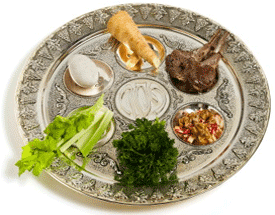Unleavened Bread
Christianity is imbued with cultural practices,
most of which are unknown to many of us in the contemporary church setting.
This year’s Easter Holiday celebrations happened to be uniquely special for me.
Having intermittently attended church service sermons at a predominantly local
Afrikaner church for the last six months, I got the opportunity to be party to
an evening family celebration of the Passover in the authentic Jewish manner.
 |
| Image courtesy of Google Images |
St. James church in Bloemfontein invited the
Jews for Jesus members to display, educate, and partake of the Passover with
the congregants in a symbolic gesture emblematic of both the redemption of Israelites
from slave bondage in Egypt and that of us, the sinners, from the shackles of
sin. Indeed, the occasion provided a wonderful opportunity to explore the depth
of Christ's sacrifice through the Passover. https://youtu.be/d4XyYv991h4
Regaling in the depths of captivating stories
from the Old Testament, the Passover evening reminded me of the significance of
sacrifice; the need for the spirit to be greatly tempered in order to ably persevere
the tribulations that tempt many a feeble body to succumb to the weaknesses of
the flesh. The Passover evening on this specific night underscored the need to
remember how easy it is to give up, to whine, and to wish for an inglorious
past thereby missing out on a future of great fulfilment: Israelites’
ingratitude in the wilderness vis-à-vis the promised land.
The Jews for Jesus Passover should be a bold
reminder of rootedness and the need for strong anchoring in communal mores that
pitch human values at the epicentre of our interactions. For a Christian,
certain traditions like celebrating the Lord’s table signifies selflessness and
God’s love for humankind through the death of His only son for our salvation. The
Passover is thus not only a referential point of identification for a
Christian, but also a significant site of memory to remember God’s plan for us
and to be re-membered to the bigger community of Christ’s followers.
I refer to this continuum of cultural practice
as a way of encouraging a spirit of cultural ownership and the need to
celebrate our identities as Kenyan people. Although there might exist negative
traditions that are detrimental to life and humanely possible interactions with
other humans, there still lingers specific elements that are invaluable to who
we are as a people. It is these that should find home in the definition of our
cultural rites of passage, modes of identification, approaches to informal
education, and become the bulwark of our ethnic pride.
But I digress, the Passover Lamb is Jesus and
the celebratory night is accompanied by a number of questions such as:
1.
Why is this night
different from all other nights?
2.
On all other nights, we
may eat either chometz or matzoh; on this night, only matzoh.
3.
On all other nights, we
eat all kinds of vegetables; on this night, we must eat maror.
4.
On all other nights, we
do not dip even once; on this night we dip twice.
5.
On all other nights, we
may eat either sitting or reclining; on this night, we all recline.http://biblia.com/bible/nasb95/Exodus%2013.14
An explanation of these provides insights into the
practice of the Passover but the overall message is one of love of a God who
cannot forget us just as a mother would not forget the child born of her womb. His
promises will be fulfilled at His own time and bidding but He will never
forsake His own. http://biblia.com/bible/nasb95/Isaiah%2049.15


